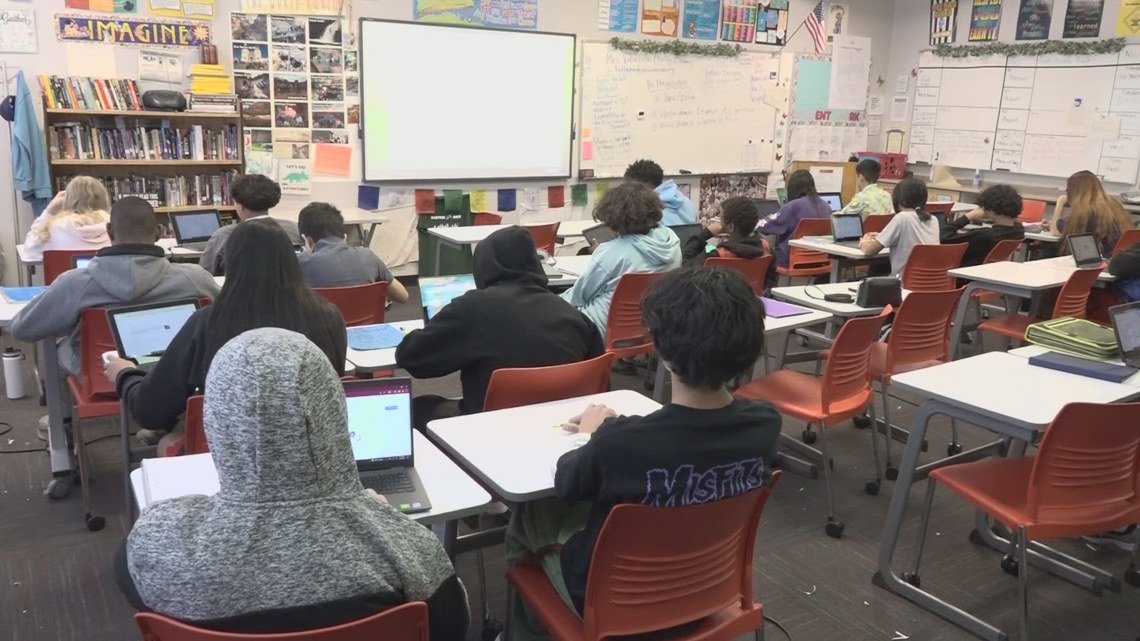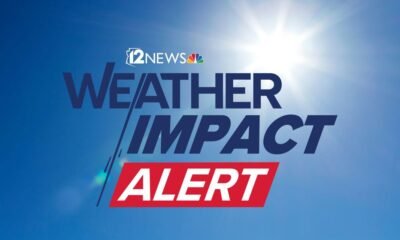arizona
Arizona Students Struggle: Math and Reading Scores Plummet Amid National Educational Crisis

Arizona’s educational landscape has faced notable challenges, as recent assessments reveal a significant decline in reading skills among students. The state, among the first to resume in-person classes during the COVID-19 pandemic, has been reported to struggle with both reading and math scores.
The latest results from the National Assessment of Educational Progress (NAEP) indicated that fourth and eighth graders in Arizona have not only dropped in reading proficiency since 2022 but are also performing below the national average in both subjects. This decline reflects a troubling trend as U.S. schools grapple with the aftermath of the pandemic.
Peggy Carr, the commissioner of the National Center for Education Statistics, described the findings as disheartening. “We are not seeing the progress we need to regain the ground our students lost during the pandemic,” she stated. Fewer students are reaching basic reading skills, while math scores remained stagnant for eighth graders since 2022.
The disparities among student performance are stark. While the top 10% of students improved their scores, the lowest 10% faced increased challenges, particularly in eighth-grade math. Reports indicate a growing gap, with lower-performing students struggling the most to keep up.
This troubling pattern is not isolated to Arizona. Nationwide, results from the 2024 NAEP show that many students still falter in fundamental skills. A significant number of eighth graders are unable to make simple inferences or understand basic vocabulary, raising concerns among educators.
Factors contributing to these declines include school closures, a youth mental health crisis, and chronic absenteeism. According to the data, students who miss classes regularly are making the least progress academically. A survey conducted alongside the assessment showed a decrease in students reading for enjoyment, a habit closely linked to reading proficiency.
As the debate over the impact of pandemic-related school closures continues, the evidence remains complex. Some states with longer closures, like California and New York, have managed to make strides in specific areas, highlighting the benefits of federal pandemic relief funding in education recovery efforts.
Meanwhile, Republicans have criticized the administration for what they see as systemic failures in the education system. They argue that the focus on “woke policies” has detracted from essential learning, further complicating the response to declining scores.
Despite these setbacks, there are glimmers of hope. Notable improvements are emerging in states like Louisiana and Alabama, where targeted strategies to enhance reading proficiency show promise. Carr emphasized the potential for recovery, citing research-backed approaches like the science of reading, which focuses on phonics as a foundation for literacy.
As education officials ponder the implications of these findings, they face the tough challenge of addressing the urgent needs of all students. Finding effective solutions will be crucial in reversing the trends observed in recent years.
Annie Ma contributed reporting from Washington, and Sharon Lurye contributed from New Orleans.


















